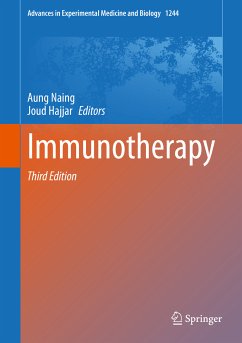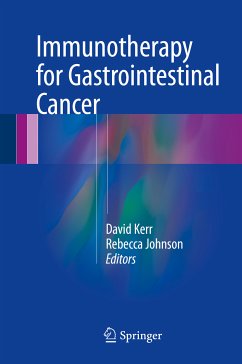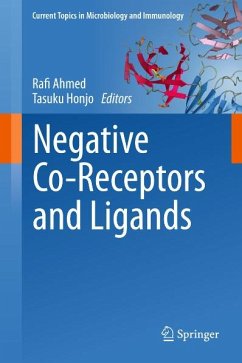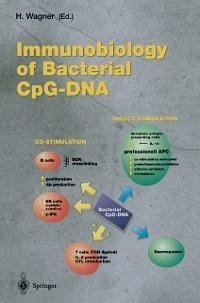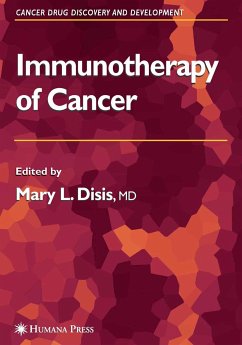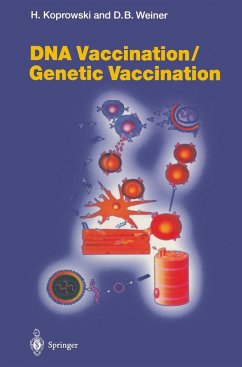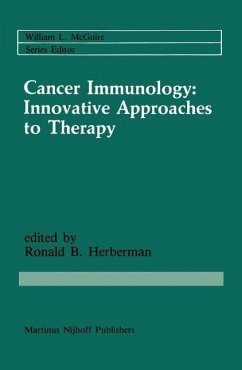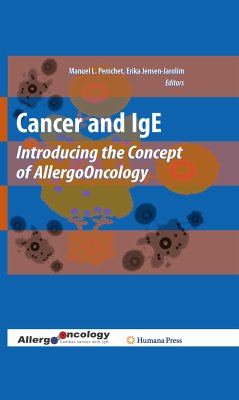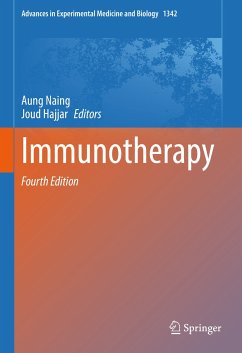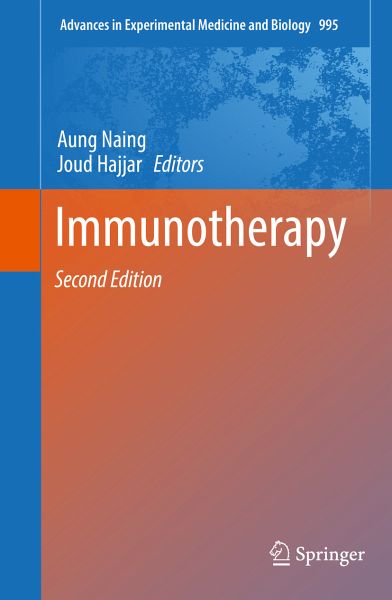
Immunotherapy (eBook, PDF)

PAYBACK Punkte
32 °P sammeln!
The second edition of Immunotherapy is an updated overview of immuno-oncology in acute myleloid leukemia, non-small cell lung cancer and melanoma, showcasing advances in the management of cancer broadly classified as hematological malignancies and solid tumors. Though the spectrum of clinical activity and duration of response seen with these agents is promising, objective response is limited to a subset of patients and is often associated with distinct side effects that are potentially life-threatening. With increasing use of checkpoint inhibitors as standard of care and in clinical trials, th...
The second edition of Immunotherapy is an updated overview of immuno-oncology in acute myleloid leukemia, non-small cell lung cancer and melanoma, showcasing advances in the management of cancer broadly classified as hematological malignancies and solid tumors. Though the spectrum of clinical activity and duration of response seen with these agents is promising, objective response is limited to a subset of patients and is often associated with distinct side effects that are potentially life-threatening. With increasing use of checkpoint inhibitors as standard of care and in clinical trials, the burden of immune-related adverse events will undoubtedly increase. Given these limitations and increase in health care costs associated with such therapies, it is essential to identify patients who are likely to respond to immunotherapy and those who are at a risk for developing treatment-related side effects.
This new edition will inform readers on the latest in biomarker development to identify patients who are more likely to respond, and strategies to overcome the challenges of immune-related adverse events. In addition, the authors recognize that including the missing patient voice in clinical trials and longitudinal assessment of symptom reports may help to identify early indicators of response or toxicity. Thus, the book includes a chapter on patient-reported outcomes in patients treated with immunotherapies. The authors believe that acquiring this knowledge will help health care professionals make informed treatment decisions.
Edited by two renowned experts in the field, the book's chapters are written by a diverse cast of experts conducting cutting-edge research, providing the reader with the most up-to-date science.
This new edition will inform readers on the latest in biomarker development to identify patients who are more likely to respond, and strategies to overcome the challenges of immune-related adverse events. In addition, the authors recognize that including the missing patient voice in clinical trials and longitudinal assessment of symptom reports may help to identify early indicators of response or toxicity. Thus, the book includes a chapter on patient-reported outcomes in patients treated with immunotherapies. The authors believe that acquiring this knowledge will help health care professionals make informed treatment decisions.
Edited by two renowned experts in the field, the book's chapters are written by a diverse cast of experts conducting cutting-edge research, providing the reader with the most up-to-date science.
Dieser Download kann aus rechtlichen Gründen nur mit Rechnungsadresse in A, B, BG, CY, CZ, D, DK, EW, E, FIN, F, GR, HR, H, IRL, I, LT, L, LR, M, NL, PL, P, R, S, SLO, SK ausgeliefert werden.



